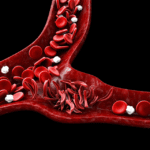Fatty Acid Supplements May Improve Social and Emotional Wellbeing Even in Toddlers
Fatty Acid Supplements May Improve Social and Emotional Wellbeing Even in Toddlers https://pediatricsnationwide.org/wp-content/themes/corpus/images/empty/thumbnail.jpg 150 150 Natalie Wilson Natalie Wilson https://pediatricsnationwide.org/wp-content/uploads/2021/06/Natalieheadshot3-2.png- November 03, 2020
- Natalie Wilson
Children who were given supplements of Docosahexaenoic acid (DHA), an omega-3 fatty acid that serves as an important building block in babies’ developing brains, were less likely to meet the threshold on a test that determines whether they should be further evaluated for Autism Spectrum Disorder.
When children are born prematurely, they miss the opportunity to receive key nutrients and fats from their mothers during the late stages of fetal development. One of these key nutrients, Docosahexaenoic acid (DHA), is an omega-3 fatty acid that serves as an important building block in babies’ rapidly developing brains. This may be one reason that children born preterm experience higher rates of cognitive impairments, behavioral problems and socioemotional difficulties, compared with children born at term.
Physicians and parents may try to make up for that lost time using nutritional supplements. Research has shown that preterm infants who may not get enough DHA naturally can benefit from supplements of the crucial nutrient soon after birth. DHA is found naturally in breast milk, and DHA has been included in infant formula in recent years.
Physicians didn’t know, however, whether babies could continue to benefit from receiving supplementary DHA as they grew older transitioned from breast milk or formula to table food and cow’s milk. During this time, children may enter a period of DHA deficiency. Could supplements help?
To evaluate this, Sarah Keim, PhD, principal investigator in the Center for Biobehavioral Health in the Abigail Wexner Research Institute at Nationwide Children’s Hospital, and her team studied 377 toddlers who had been treated in the Neonatal Intensive Care Unit at the hospital, were born at less than 35 weeks’ gestation and were now, at the time of the study, one year old. The “Omega Tots” were administered either a daily DHA supplement or a placebo, corn oil.
To see if there were any differences in development between the groups, the children were then given a test of cognitive skills and abilities called the Bayley-III. Parents were also asked to report on their child’s activity level and ability to focus and be patient during daily activities.
The initial results of this study, published in JAMA Pediatrics in 2018, showed that the supplement didn’t seem to improve these aspects of development compared to the placebo. Dr. Keim says that after this study, it did not seem warranted to offer DHA supplements to toddlers who were born preterm. But she and her team thought there might still be potential benefits that this initial analysis did not examine.
A secondary analysis, published in Pediatrics in September 2020, focused on social skills and emotion regulation, including behaviors typically associated with Autism Spectrum Disorder (ASD), rather than cognitive development more broadly.
This time, the supplement did seem to have a positive impact in some ways. On a test their caregivers completed, toddlers who were given DHA supplements were less likely to meet the threshold for requiring further evaluation for ASD.
When the results are taken together, the big picture of how DHA supplements might benefit children after their first few months of life seems mixed, so Dr. Keim says that it’s especially important for them to continue researching.
“Considering the results of the Omega Tots trial, as a whole, is complicated,” says Kelly Boone, MA, CCRP, associate director of the Behavioral Trials Office at the Abigail Wexner Research Institute at Nationwide Children’s Hospital and lead author of the study. “The analysis of our main outcome in 2018 showed that DHA offered no improvement for children’s cognitive development or executive function. A 2019 study found no effect on the child’s sleep. The 2020 study found no benefit for general competence or problem behaviors, but we did find that supplementation resulted in a reduced risk of displaying clinical concern for autism spectrum disorder.”
“We also do find negative effects of supplementation for certain subgroups of children,” she adds. “Without more research, we do not have strong evidence to support DHA supplementation of children born preterm during their toddler years.”
To continue working towards a clearer understanding of the relationship between DHA supplements toddlers’ development, the team has been awarded funding from the National Institutes of Health for several additional studies.
First, they will continue to study the 377 children featured in the previous two papers now that they are in school to explore whether there are any long-term impacts of receiving the DHA supplements or whether any clearer patterns emerge. Benefits or effects might become greater as children grow and develop, and more sophisticated tools can also be used to evaluate them.
With another group of kids, the researchers plan to test a different fatty acid supplement for its effect on children who are have been already diagnosed with autism.
The researchers also plan to look at children’s’ genetics. Certain genes regulate how the body uses important nutrients like DHA and makes them available to the brain. Exploring the role of each gene may be able to help researchers recommend which fatty acid supplements, and in what form and dosage, are appropriate for each child and their unique gene footprint.
Many products containing fatty acids like DHA are available over the counter and many natural food sources of protein also contain DHA. Each of these studies better enables caregivers and physicians to make thoughtful, evidence-based decisions about when or whether adjusting a child’s diet or giving them supplements would be appropriate and beneficial.
“We don’t yet have a clear sense of if DHA supplementation is helpful for toddlers born preterm,” says Boone. “Because a large number of DHA-supplemented foods are marketed to toddlers, it is important to continue to study the effect of DHA supplementation in toddlerhood in larger samples of children and consider how this might affect a child’s development.”
Reference:
Boone KM, Parrott A, Rausch J, Yeates KO, Klebanoff MA, Turner AN, Keim SA. Fatty Acid Supplementation and Socioemotional Outcomes: Secondary Analysis of a Randomized Trial. Pediatrics. 2020 Oct.
About the author
Natalie is a passionate and enthusiastic writer working to highlight the groundbreaking research of the incredible faculty and staff across Nationwide Children's Hospital and the Abigail Wexner Research Institute. Her work at Nationwide Children's marries her past interests and experiences with her passion for helping children thrive and a long-held scientific curiosity that dates back to competing in the Jefferson Lab Science Bowl in middle school. Natalie holds a bachelor’s degree in sociology from Wake Forest University, as well as minors in women's, gender & sexuality studies and interdisciplinary writing. As an undergraduate student, Natalie studied writing and journalism, engaged with anthropological and sociological research with a focus on race and ethnic relations, served as executive editor for the student newspaper, the Old Gold & Black, and gained marketing experience as an intern for a nonprofit entrepreneurial incubator, Winston Starts, as well as by working for Wake Forest University School of Law Office of Communication and Public Relations and its Innocence and Justice Clinic.
-
Natalie Wilsonhttps://pediatricsnationwide.org/author/natalie-wilson/
-
Natalie Wilsonhttps://pediatricsnationwide.org/author/natalie-wilson/
-
Natalie Wilsonhttps://pediatricsnationwide.org/author/natalie-wilson/
-
Natalie Wilsonhttps://pediatricsnationwide.org/author/natalie-wilson/
- Posted In:
- In Brief










